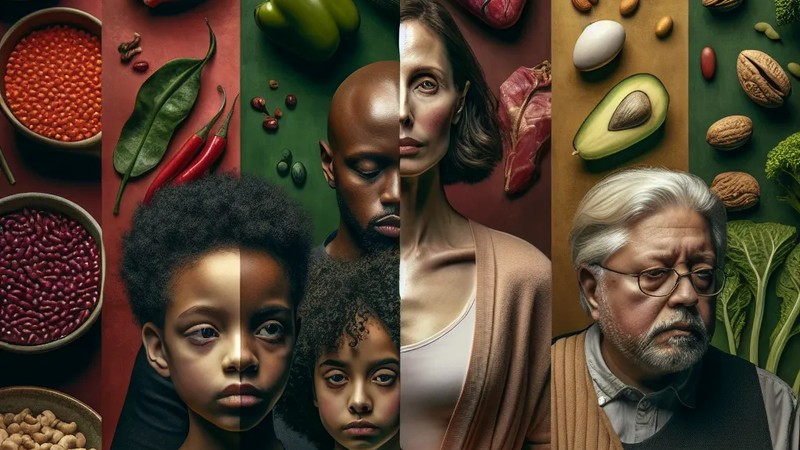Even though Mental Health Awareness Month has concluded in South Africa, a significant connection is gaining recognition: the impact of low iron levels on mental well-being.
Whether it’s toddlers, teens, new mothers, or seniors, iron deficiency often shows up as mood swings, brain fog and tiredness.
“Iron plays a vital role in producing serotonin, dopamine, and norepinephrine, the brain’s mood, sleep, and focus chemicals,” explains Sister Karin Davidson, anaemia advocate and head of the Cape Town Infusion Centre.
Without enough iron, these neurotransmitters can’t be made efficiently, leading to emotional instability, brain fog, or low mood.
Global research backs this up. A 2020 population-based cohort study found that people with iron deficiency anaemia (IDA) face a significantly higher risk of depression, anxiety and sleep disorders than those with normal iron stores.
And a review of studies among women found that improving iron status improved mental-health scores and reduced fatigue.
This highlights how iron deficiency is more than just a physical issue; it can profoundly impact emotional and mental well-being as well.
According to the World Health Organization (WHO), approximately one quarter of the world’s population lives with anaemia, about 1.62 billion people.
In South Africa, surveys show that:
- 61% of children under five are anaemic,
- with one-year-olds being particularly vulnerable (52%).
- 43% of women of reproductive age and
- 40% of adolescent girls in sub-Saharan Africa suffer from iron deficiency.
“These aren’t just numbers,” says Davidson. “Each represents a person likely struggling with daily mood swings, exhaustion, and loss of focus. Yet the fix is often simple and preventable.”
How low iron affects mental health at every age
Low-iron symptoms don’t always look dramatic; often, they’re disguised as “just living a busy life.
One of the most heartbreaking aspects of iron deficiency is how normalised its symptoms have become. Many people brush off persistent fatigue, brain fog, or mood swings as stress or “just life.”
Physical symptoms to watch for:
- Constant exhaustion, even after rest.
- Frequent headaches or dizziness.
- Pale skin, brittle nails, or hair loss.
- Shortness of breath and heart palpitations.
Mental health red flags:
- Depression or unexplained low moods.
- Anxiety that seems to come out of nowhere.
- Irritability, emotional outbursts, or mood swings.
- Brain fog, memory problems, or ADHD-like symptoms.

The connection between iron and mental health is backed by solid research.
Here’s how it manifests across different life stages:
Children and adolescents
“Iron deficiency can fundamentally alter how young people experience the world,” explains Davidson.
Low iron can lead to:
- Difficulty concentrating in school.
- Emotional outbursts and irritability.
- Exhaustion that prevents socialising or studying.
- For adults, the signs of low iron often include:
- Anxiety, restlessness, or irritability.
- Brain fog and difficulty focusing.
In seniors, low iron is frequently mistaken for “normal” ageing. Symptoms like fatigue, apathy, and memory issues are often overlooked.
5 iron-rich foods to start eating today
Here’s where the lifestyle angle kicks in: no complicated meal plans, just easy food swaps to boost your iron and potentially lift your mood. These are suitable for everyday South African kitchens:
1. Red meat or poultry: Lean beef, lamb, or chicken contains heme-iron (easily absorbed).
2. Legumes: Think lentils, beans, chickpeas: excellent plant-based non-heme iron sources. Aim to pair with vitamin C-rich foods to boost absorption.
3. Dark leafy greens: Spinach, Swiss chard, and the like offer non-heme iron plus the bonus of folate and fibre.
4. Shellfish or fish: Oysters, clams, tuna, or sardines serve up iron (and bonus brain-healthy nutrients).
5. Pumpkin seeds, dried fruit, and nuts: Snack-friendly, iron-packing, and easy to add to your routine. Pair them with citrus or tomatoes for better absorption.
Schedule a simple blood test check: ask your doctor about haemoglobin, serum iron and ferritin (an iron storage marker).
If you’re vegetarian or vegan, remember that your non-heme iron sources are limited, and aim for a slightly higher intake, as plant-based iron absorbs less easily.
